4-Week Resiliency and Mindfulness Training Program for challenging times WEbinar series - Overview
This 4-Week program provides the core tools, skills and practices people need to navigate challenging times. This webinar series is packed with insights and practical tools as it explores the neuroscience behind stress in uncertain times, how to manage your focus in a highly distracting environment, and how to deal with frustration and negativity when things keep changing faster than you would like.
At the end of the program participants will have the skills and techniques they need to be more:
resilient to the changes and uncertainty they face today,
less reactive to unmet expectations and frustrations,
more focused on what matters and less distracted by their thoughts or the digital ‘noise’ around them,
more open to change in their world and able to adapt, pivot or leverage the change in a positive way,
more present and better able to connect and collaborate with other team members.
Each Session is available in a 60-minute, 75-minute or 90-minute version, with longer time frames creating space for more tools, more practice, more discussion and more accountability.
Week 1 (60-90 minutes) - Presence
Learning Objectives:
1. Putting COVID-19 in context relative to how our nervous system is designed.
2. Understanding our ‘survival brain’, survival behaviours and reactivity.
3. Learning tools and skill to calm our nervous system and reframe what we see and shift how we respond.
What’s in your control?
The importance of self-care.
Breathing and meditation practice as a way to reset your nervous system.
The importance of being more present and practices that help to be present.
Having an anchoring slogan to keep their brain on track.
4. Accountability and the tools and practices to create and maintain habit change following the course.
5. A sense of connection (even though we are distant) and shared learning.
Week 2 (60-90 minutes) - Focus
Learning Objectives:
1. Review Learning from Practicing Week 1.
2. Understanding why focus is so challenging for us today.
3. Understanding the neuroscience behind how your ‘survival brain’ responds to uncertainty and an overwhelm of distractions today.
4. Understanding how ineffective some of our current strategies to cope really are.
5. Learning Tools that help you better focus:
a. Stop Multi-tasking
b. Practice JOMO
c. Manage Your Distractions (Internal and External)
d. Training Your Brain to ‘sit, stay, focus’
6. Accountability and the tools and practices to create and maintain habit change following the course.
7. A sense of connection (even though we are distant) and shared learning.
Week 3 (60-90 minutes) - Acceptance and Non-judgment
Learning Objectives:
1. Review Learning from Practicing Weeks 1 and 2
2. Understanding why we get frustrated with circumstances and people and our world.
3. Understanding the neuroscience behind how your ‘survival brain’ reacts to frustration and unmet expectations.
4. Understanding how ineffective some of our current strategies to cope are.
5. Learning Tools that help you be more resilient when frustrated:
a. Acceptance and Non-judgment
b. Pain vs. Suffering
c. Discernment
d. Self-compassion
e. Body scan meditation
6. Accountability and the tools and practices to create and maintain habit change following the course.
7. A sense of connection (even though we are distant) and shared learning.
Week 4 (60-90 minutes) - responding to change
Learning Objectives
1. Review Learning from Practicing Weeks 1 to 3
2. Understanding the unusual level of change we are experiencing and how stressful that is.
3. Understanding how your ‘survival brain’ reacts to and resists change.
4. Understanding how ineffective some of our current strategies to resist change or cope with it are.
5. Learning Tools that help you:
a. be more open and accepting to heightened and ongoing change in our world.
b. stay grounded and centred such that you can cope with ongoing change over the coming months.
c. leverage gratitude and compassion as ways to recognize the good that is present and to connect with others who may be struggling through this as well.
6. Accountability and the tools and practices to create and maintain habit change following the course.
7. A sense of connection (even though we are distant) and shared learning.
“Scott brought me a new way of life. I am a more calm and patient person. I am working to build the space between the stimulus and response. It is a big challenge for a person with an accelerated pace like me. I also see that it is possible to simply breathe and live the present, which is fundamental to control anxiety. Thanks, Scott!”
- I. Gomes
course Assessment and Attendance
Participants will complete a pre-course assessment prior to beginning the training and a post-course assessment upon completion of the program. The pre/post self-assessment provides the individual with a measure of their learning gain.
Participation is recorded by the organizer via Zoom or Microsoft Teams platform sign in.
Pricing (4-Week resilience Program)
$1,999 to 2,599* (plus GST), depending on lengths, for groups of 6 - 50 people. It is recommended that larger groups be split into separate cohorts. Includes tailoring the content to the specific context of the organization and the work they do, weekly PDF participant guidebook, webinar recordings, breath practice recordings and weekly email tips.
* This program may be eligible for BC Job Grant funding. Please contact at Granted Consulting to find out if your company, or your individual training, is eligible.
Delivery Method
Online Webinar or Classroom Delivery
What makes this different?
PRACTICAL: This program is based on a simple, practical framework that breaks mindfulness into foundational skills. The program is built entirely around experiential learning, which makes the learning engaging, insightful and deep.
REAL: It uses a mix of simple metaphors that make the ideas intelligible and easy to take in. The content is continually put into the context of your people and the real-world challenges the participants brings to each session. This keeps the content real, relevant and practical.
HABIT CREATION: The process provides a build of skills, starting with the most basic and building up to more advanced skills. It then uses repetition, consistency and accountability such that participants actually create new habits and thus get the results they are after.
What are the benefits?
The primary benefits of this training are many and include:
Less stress, less reactivity and greater calm.
More openness to options and alternative ideas, which can lead to greater creativity and better solutions.
More ease in working with chaos and complexity.
Stronger relationships, increased trust and greater collaboration.
More intentional choices.
Greater productivity.
Instructor Bio
Scott is a mindfulness trainer and coach, who gives leaders and busy professionals the tools they need to thrive in a chaotic and distracting world. He has studied mindfulness under a variety of experts, and brings 10 years of designing and delivering highly successful leadership development programs from his former corporate life. Using a powerful mix of mindfulness practices, reframing tools, clear metaphors, powerful experiences and the science of behaviour change, he provides people with the tools they need to be more resilient, more focused and more productive.
He was previously the National Leader of HR for one of Canada’s largest employee-owned engineering and science consulting organizations. Scott draws on his 27 years of corporate experience to connect the concepts of mindfulness with the world of corporate leaders and the analytical minds of busy managers and professionals.
He also walks the walk every day. As a business owner and entrepreneur, he uses these skills to manage his focus, his resilience and his reactivity to the world on a daily basis. As a parent, mindfulness and reframing tools have been a godsend when dealing with emotional, oppositional and stubbornly defiant behaviour. As a human just doing his best each day, he couldn’t imagine navigating all the up’s and down’s life serves up without his practice.
Scott has had the great fortune to work with the brilliant people at Smythe LLP, Manning Elliott LLP, Baker Tilly WM LLP, Odlum Brown, CPA BC, CPA Alberta, BC Hydro, UBC, BCIT, SFU, Urban Systems Ltd., Miller Titerle + Co. LLP, Alexander Holburn Beaudin + Lang LLP, Clark Wilson LLP, Miller Thomson LLP, EA Canada, Galvanize, SAP, Habanero Consulting, Covenant House Vancouver, BC Assessment, Dossier Creative, The Dupuis Langen Group, Brighter Mechanical, plus numerous entrepreneurs and sole practitioners.
Testimonials can be found on the Testimonial Page.

